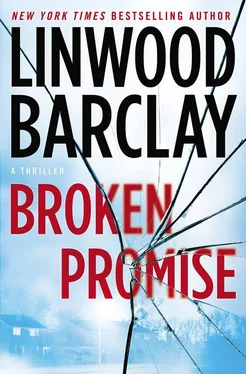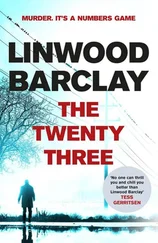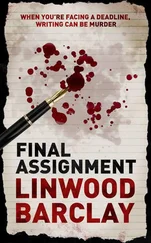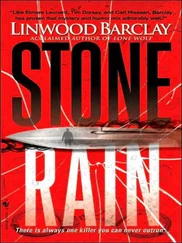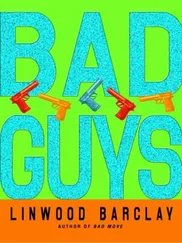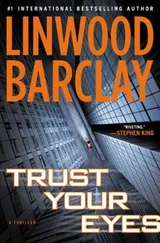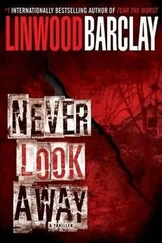“I think you’ve had a lot to drink, Victor.”
“You are correct,” he said. “Don’t think I’ll be jogging tonight. I don’t know how you do it.”
“Do what?”
“Get up every day and go about your business. How do you and Beth manage that?”
“Beth passed on,” Walden said. “Just a while ago.”
“Oh, bloody fuck,” Victor said, shaking his head, taking a drink. “I had no idea. I’m so sorry.” Another head shake. “I almost — this is going to come out wrong, and I apologize in advance — but I almost kind of envy her. If I died, I could stop being so sad.” He paused. “And angry.”
“It’s been three years,” Walden said.
“Later this month,” Victor said, nodding, indicating he was already well aware. “Saturday of the Memorial Day weekend. Isn’t that kind of ironic? We shall remember Olivia on Memorial Day. Oh, yes, we shall.” He raised his beer in a toast. “To Olivia.”
“You should probably head home,” Walden said.
“Like I said, I don’t know how you manage. I mean, I was never actually married to her. She was the love of my life — God, what a cliché — but it’s true, you know? But I only knew her a couple of years. But she was your daughter. That’s got to be worse.”
“You find ways to manage,” Walden said.
“I don’t even know if I’m still grieving, exactly,” Victor said. “But it was like what that writer said in that book. It was a tipping point, what happened to Olivia. I went off the deep end then, and I’ve been trying to climb back up ever since, but once you’re down there, all this other shit happens to you that keeps you there. Is this making any sense?”
“Yeah.”
“I mean, I’ve had plenty of time to get over Olivia, right? Lots of time to move on.”
“You never get over it,” Walden said.
“Yeah, I get that. But people have to find a way to move forward, right? I mean, fuck, look at all those people who were in concentration camps. What could be worse than what they went through? Yet they went on with their lives when they got freed and the war was over. I mean, sure, they probably never got over it, but they became functioning members of society.” He squinted at Walden. “Would you call me functioning?”
“I don’t know that I’m qualified to judge that,” Walden said.
“Well, let me answer it for you. I am not. But I’ll tell you what I am, to this day. I’m angry.”
“Angry,” Walden repeated.
“At myself. And all the others. What do you think they’ll do on the third anniversary?”
“I bet they won’t give it a thought.”
Victor pointed his index finger at Walden. “Right you are, Mr. Fisher.”
“Walden. You know you can call me Walden.” He paused. “What do you mean, angry at yourself?”
Victor looked away. “I was late.”
Walden nodded. “I know.”
“I was late meeting her. If I’d been on time, none—”
Walden rested a hand on the young man’s shoulder. “Don’t torture yourself.”
The younger man looked at him, smiled. “I think you’d have been a damn fine father-in-law.”
Walden was less certain Victor would have been the best son-in-law in the world, but it did not stop him from saying, “And I’d have been proud to be your father-in-law.”
The bartender set a Coke on the counter but Walden didn’t touch it.
Victor surveyed the room. “You think it was any of them?” he asked, taking another pull off the bottle.
“Any of them what?”
“You think it could have been any of these guys sitting right here? Who did it?”
“I don’t know.”
“Every time I walk around this town, I look at everybody and wonder, Was it you? Or you?” He finished off the bottle. “These are our neighbors. I was born in this town, grew up with these people. For all I know I’m living next door to a maniac. Maybe hanging out in a bar with one.”
Victor raised the bottle, then rammed it straight down onto the bar, shattering it, leaving him with nothing in his hand but the neck and shoulder.
“Hey!” the bartender said.
But other than that, the place went silent. All the patrons stopped their conversations in midsentence and turned to look down toward the end of the bar, where Victor had come off his stool and was standing, staring at all of them.
“Was it any of you?” he asked, his voice barely above a whisper.
“Vick,” Walden said quietly. “Stop.”
“You need to take your son home,” the bartender told Walden.
“He’s not—” Walden started to say, then decided not to bother.
“Was it?” Victor Rooney asked again, moving closer to a table where five men were sharing a pitcher. “Was it any of you assholes?”
One of the men, broad of chest and more than six feet tall, kicked his chair back and stood up. “Think maybe you’ve had enough, pal,” he said.
Walden tried to take Victor by the arm, but the younger man shook him off.
“Oh, I’ve had enough, that’s for sure,” Victor said. “I’ve had enough of the whole lot of you.”
Another man stood. Then a third.
“Come on,” Walden said, getting a firmer grip on the man’s arm. “I’m taking you home.”
This time Victor didn’t shake him off. He allowed Walden to lead him toward the door, but not before whirling around for one last shot.
“Assholes!” he said. “Every last one of you!”
Walden got him through the door and pushed him out onto the sidewalk.
“You pull a stunt like that again,” Walden said, “and you’re going to end up in the hospital. Or worse.”
Victor was fumbling in his pocket for his keys. Once he had them out, Walden grabbed them.
“Hey.”
“I’ll drive you home,” Walden said. “You can come back for your van tomorrow.”
“What if I don’t remember where it is?”
“I’ll remember.”
“I guess.”
“And then I think we need to talk,” Walden said. “About getting your life back on track.”
“I’m going to leave this town,” Victor said. “I’m going to get the hell out of here.”
“When? Do you have something lined up? A job?”
“I just want out. Everywhere I look, I’m reminded of Olivia.”
“How soon are you leaving?” Walden asked, unable to hide the concern in his voice.
“Not sure. Still got a few things to do here; then I’m gone. End of the month, I’d say.”
“Hang in, at least till then,” Walden said. “Maybe something will still work out for you here. I could ask around.”
Victor smiled. “Don’t waste your time on me.”
Barry Duckworth had learned less from his search of Sarita Gomez’s room than he’d hoped.
The detective already knew the Gaynors’ nanny had no phone of her own. But she didn’t have a computer, either. At least not one that she’d left behind in the apartment. So there were no e-mails to check, no bookmarked Facebook page. No electric bill. No monthly Visa statement. No invoice from a visit to the dentist. Nor were there any personal letters, or even an address book. Sarita either packed up everything in a hurry, or she led a very simple, off-the-grid kind of existence. No digital trail here.
No bloodstained uniform, either.
Duckworth had asked the nanny’s landlord, she of the amazing banana bread, whether she might have any pictures of Sarita. “On your phone, anything like that?”
No such luck. Duckworth didn’t even know what this woman he was searching for looked like.
He was driving back to the station when he realized there was something big he had allowed to slip through the cracks.
The Thackeray College predator.
The Gaynor murder had so completely taken over his day that he’d neglected to do anything following his chat with the college’s head of security. Clive Duncomb. “Asshole,” Duckworth said to himself behind the wheel of his unmarked car. Duckworth had left his business card with Duncomb and told him to e-mail him the names of the three women who’d been attacked. They needed to be interviewed by the Promise Falls police. But the day had gone by and no names, no e-mail at all from Duncomb. Duckworth could just guess what the ex — Boston cop thought of the local police. That they were a bunch of know-nothing rubes.
Читать дальше
